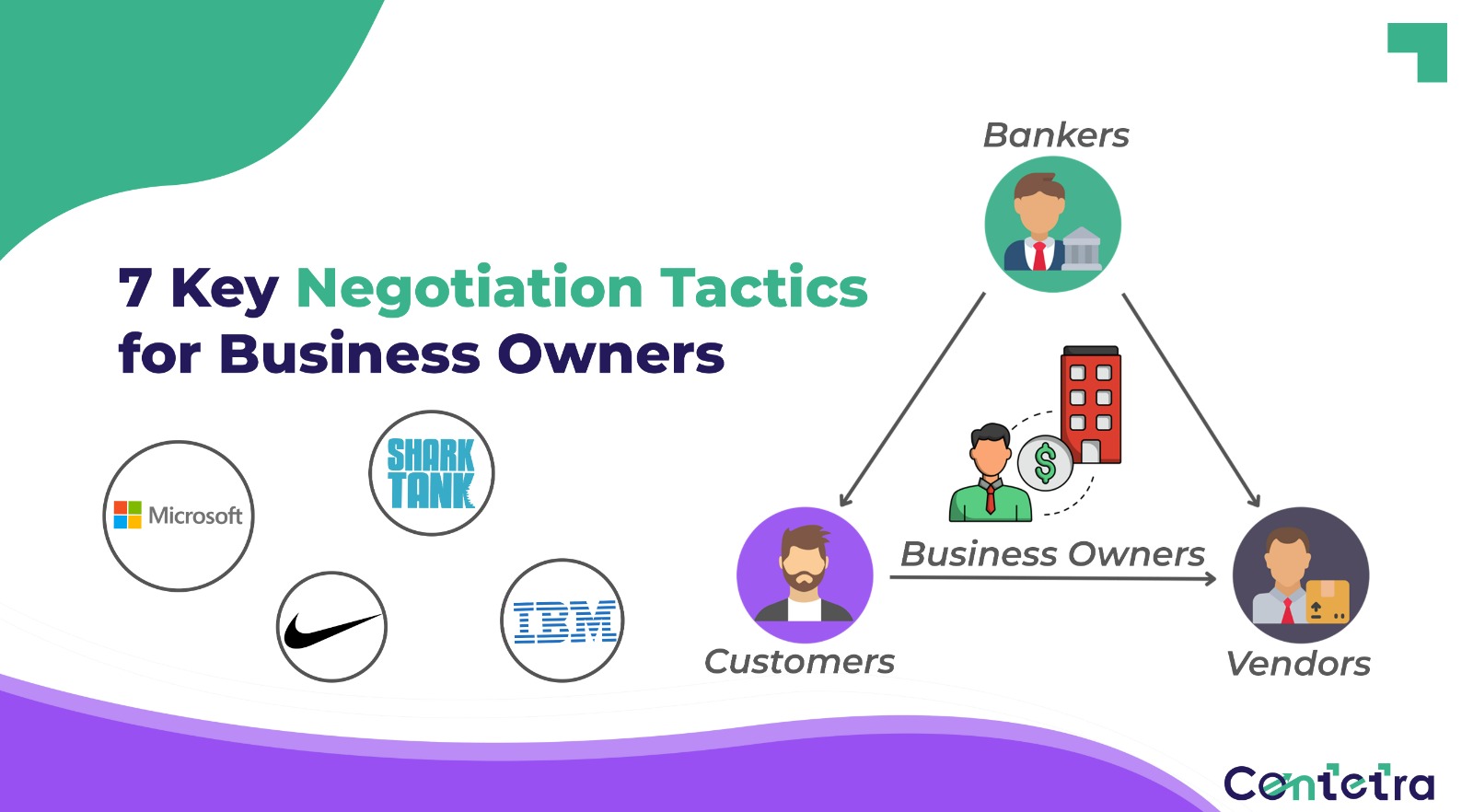Mastering Contract Negotiation Tactics: Your Ultimate Guide To Winning Deals
When it comes to contract negotiation tactics, the stakes are always high. Whether you're sealing a multimillion-dollar deal or agreeing on terms for a small business partnership, knowing how to negotiate effectively can make or break your success. But here's the thing—negotiation isn't just about being tough or aggressive. It's about strategy, understanding, and creating win-win situations that benefit both parties.
Let me break it down for you. Imagine walking into a meeting room with a stack of papers, ready to sign off on a deal. You're confident, prepared, and ready to negotiate. But wait—do you know the right tactics to use? Are you aware of the psychology behind negotiation? Or are you just winging it, hoping for the best? That’s where this guide comes in. We’ll deep dive into the world of contract negotiation tactics, equipping you with the knowledge and skills to ace every deal.
This isn’t just about learning a few tricks here and there. It’s about mastering the art of negotiation, understanding the other party’s needs, and finding common ground. So buckle up, because we’re about to take you on a journey through the ins and outs of contract negotiation tactics. Ready to become a pro?
Read also:Will Dan And Serena Get Back Together Exploring The Possibilities
Table of Contents
- Understanding the Basics of Contract Negotiation
- Overview of Key Negotiation Tactics
- The Psychology Behind Negotiation
- Preparation: The Key to Success
- Common Mistakes to Avoid
- Advanced Strategies for Winning Negotiations
- Legal Aspects to Consider
- Building Long-Term Relationships
- Tools and Resources for Negotiators
- Conclusion: Putting It All Together
Understanding the Basics of Contract Negotiation
Alright, let’s start with the fundamentals. Contract negotiation isn’t just about sitting across the table and haggling over numbers. It’s a structured process that involves understanding the terms, evaluating risks, and ensuring both parties walk away happy—or at least satisfied. Here’s what you need to know:
First off, a contract negotiation typically involves two or more parties trying to reach an agreement on specific terms. These terms could range from pricing, delivery timelines, service levels, to even termination clauses. The goal? To find a middle ground where both sides feel they’re getting what they want—or at least something close enough.
Now, here’s the kicker—effective negotiation isn’t just about being persuasive. It’s about being strategic. Think of it like a chess game. You need to anticipate your opponent’s moves, plan your own, and always keep an eye on the bigger picture. And trust me, the better you understand the basics, the stronger your position becomes.
Why Are Contract Negotiation Tactics Important?
Negotiation tactics play a crucial role in shaping the outcome of any deal. They help you navigate tricky situations, manage expectations, and even turn unfavorable conditions into opportunities. Without the right tactics, you might end up agreeing to terms that don’t align with your goals—or worse, losing the deal altogether.
For example, let’s say you’re negotiating a contract with a supplier. If you don’t use the right tactics, you might end up paying more than you should or agreeing to terms that limit your flexibility. On the flip side, using the right tactics can help you secure better pricing, favorable terms, and even additional perks.
So, whether you’re negotiating a lease agreement, a business partnership, or even a job offer, having a solid understanding of negotiation tactics is essential. It’s not just about getting the best deal—it’s about protecting your interests and building strong relationships.
Read also:Unveiling The Mysteries Of Sone 436 Plot A Comprehensive Guide
Overview of Key Negotiation Tactics
Now that we’ve covered the basics, let’s dive into some of the key negotiation tactics you should know. These tactics are tried and tested, and they work across various industries and scenarios. Here’s a quick rundown:
- Anchoring: This tactic involves setting the initial terms or numbers to influence the other party’s perception. For example, if you’re negotiating a price, starting with a higher number can make the final offer seem more reasonable.
- Reciprocity: Offering something in return for what you want can create a sense of obligation. For instance, if you’re asking for an extension on a deadline, offering a discount or additional service might make the other party more willing to agree.
- Scarcity: Creating a sense of urgency or limited availability can push the other party to act quickly. This works especially well in sales negotiations where time-sensitive offers can sway decisions.
- BATNA (Best Alternative to a Negotiated Agreement): Knowing your BATNA gives you leverage. If you have a strong alternative, you’re less likely to settle for unfavorable terms.
These tactics aren’t just buzzwords—they’re powerful tools that can significantly impact the outcome of your negotiations. But remember, the key is to use them strategically and ethically. Overusing or misusing tactics can backfire, damaging relationships and credibility.
The Psychology Behind Negotiation
Understanding the psychology of negotiation can give you a major edge. It’s not just about numbers and terms—it’s about people. Every negotiator brings their own set of emotions, biases, and motivations to the table. Here’s how you can leverage psychology to your advantage:
First, recognize the power of emotions. People often make decisions based on feelings rather than logic. If you can create a positive emotional connection, you’re more likely to reach a favorable agreement. For example, showing empathy or understanding the other party’s concerns can build trust and rapport.
Second, be aware of cognitive biases. These are mental shortcuts that can cloud judgment. For instance, the anchoring bias can make people overly focused on the first number or term they hear. By using anchoring effectively, you can steer the negotiation in your favor.
Building Trust Through Transparency
Trust is the foundation of any successful negotiation. Being transparent, honest, and straightforward can go a long way in building credibility. Instead of trying to outsmart the other party, focus on creating a win-win situation where both sides feel respected and valued.
For example, if you’re negotiating a contract with a client, being upfront about potential risks or limitations can prevent misunderstandings down the line. It also shows that you’re committed to their success, not just your own.
Preparation: The Key to Success
Preparation is the backbone of effective negotiation. You wouldn’t go into a job interview unprepared, right? The same goes for contract negotiations. Here’s what you need to do:
Start by researching the other party. Understand their needs, priorities, and constraints. This will help you anticipate their objections and tailor your approach accordingly. For example, if you’re negotiating with a supplier, knowing their production capacity or lead times can give you valuable insights.
Next, prepare your arguments and counterarguments. Think about the key points you want to make and how you’ll respond to potential challenges. Practice your delivery until you’re confident and comfortable.
Finally, set your goals and limits. Know exactly what you’re aiming for and where you’re willing to compromise. This clarity will help you stay focused during the negotiation and avoid getting sidetracked.
Using Data to Strengthen Your Position
Data is your best friend in negotiations. Backing up your arguments with facts and figures can make them more convincing. For example, if you’re negotiating a price, presenting market data or industry benchmarks can support your position and make it harder for the other party to argue against.
Just remember, data alone isn’t enough. You need to know how to present it in a way that resonates with the other party. Use visuals, analogies, or real-world examples to make your points more relatable and memorable.
Common Mistakes to Avoid
Even the best negotiators make mistakes. The key is to learn from them and avoid repeating them. Here are some common pitfalls to watch out for:
- Not Listening: Negotiation is a two-way street. If you’re too focused on making your points, you might miss important cues or opportunities from the other side.
- Overcommitting: Agreeing to terms without fully understanding the implications can lead to problems later on. Always take the time to review and analyze before signing off.
- Emotional Reactions: Letting emotions cloud your judgment can lead to poor decisions. Stay calm, composed, and professional, no matter how heated the discussion gets.
Avoiding these mistakes requires discipline and self-awareness. It’s not always easy, but with practice, you can develop the skills to stay focused and objective.
Advanced Strategies for Winning Negotiations
Once you’ve mastered the basics, it’s time to level up your game. Here are some advanced strategies that can take your negotiation skills to the next level:
First, consider using the “divide and conquer” approach. Break down complex issues into smaller, manageable parts. This makes it easier to address each point individually and find common ground.
Second, leverage the power of silence. Sometimes, saying nothing can be more powerful than speaking. Allowing the other party to fill the silence can reveal their true intentions or concerns.
Finally, focus on creating value rather than just dividing it. Instead of fighting over a fixed pie, look for ways to expand it. For example, offering additional services or resources can make the deal more attractive for both parties.
Handling Difficult Negotiators
Not every negotiation will be smooth sailing. Some negotiators may be tough, uncooperative, or even manipulative. In such cases, staying calm and professional is crucial. Don’t let their tactics rattle you. Instead, use your preparation and strategies to steer the conversation back on track.
Legal Aspects to Consider
When it comes to contract negotiations, legal considerations are a must. Make sure you understand the legal implications of every term and condition you agree to. Consult with a legal expert if necessary to ensure compliance and protect your interests.
Additionally, be aware of any industry-specific regulations or standards that may affect the contract. For example, if you’re negotiating a contract in the healthcare sector, you’ll need to comply with HIPAA regulations. Ignoring these legal aspects can lead to costly mistakes and legal disputes.
Building Long-Term Relationships
Negotiation isn’t just about closing deals—it’s about building relationships. A successful negotiation should leave both parties feeling satisfied and respected. This sets the stage for future collaborations and strengthens your reputation as a trustworthy partner.
To build long-term relationships, focus on delivering value, maintaining open communication, and being responsive to the other party’s needs. Remember, a single negotiation is just one step in a larger journey. The relationships you build today can lead to opportunities tomorrow.
Tools and Resources for Negotiators
There are plenty of tools and resources available to help you improve your negotiation skills. From online courses and books to apps and software, the options are endless. Here are a few recommendations:
- Books: “Getting to Yes” by Roger Fisher and William Ury is a classic must-read for anyone interested in negotiation.
- Online Courses: Platforms like Coursera and Udemy offer courses on negotiation strategies and techniques.
- Apps: Tools like Trello or Asana can help you organize and track your negotiation processes.
Investing in these resources can provide you with valuable insights and practical tips to enhance your negotiation skills.
Conclusion: Putting It All Together
Contract negotiation tactics are more than just tricks—they’re essential skills that can transform your business and career. By understanding the basics, mastering key tactics, and staying prepared, you can navigate even the toughest negotiations with confidence.
Remember, negotiation is a journey, not a destination. Keep learning, practicing, and refining your skills. And most importantly, always focus on creating value and building relationships. So, what are you waiting for? Go out there and start negotiating like a pro!
And hey, don’t forget to leave a comment or share this article if you found it helpful. Your feedback means a lot to us, and it helps us create more content like this in the future. Happy negotiating!


